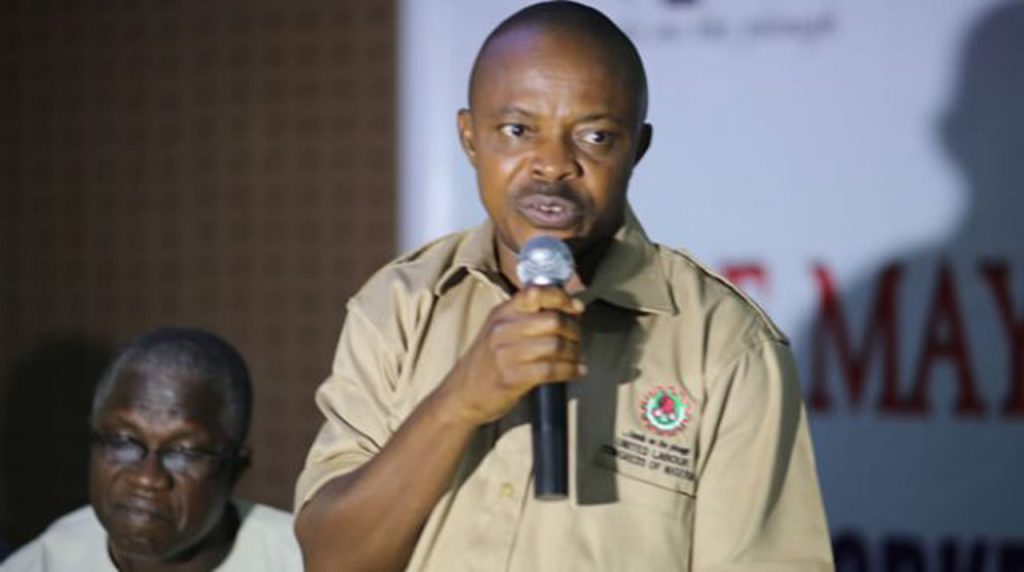The Nigeria Labour Congress (NLC), under the leadership of President Joe Ajaero, has called for a comprehensive dialogue with the Federal Government regarding the proposed Tax Reform Bill. Ajaero emphasized the need for clarity on certain aspects of the bill, advocating for the NLC’s active participation in the discussion process to ensure that the interests of Nigerian workers are adequately represented and considered. The NLC president expressed concern over the government’s failure to include the union in the initial stages of the bill’s formulation, highlighting the importance of collaborative engagement to address potential misconceptions and misinformation surrounding the proposed reforms. He urged both NLC members and the general public to thoroughly examine the bill’s contents to gain a comprehensive understanding of its implications.
Ajaero’s call for dialogue took place during an event organized by the NLC Central Working Committee at the union’s secretariat in Ibadan. The event also featured a lecture by Professor Godwin Oyedokun, an expert in accounting and financial development, who provided insights into the intricacies of the Tax Reform Bill. Professor Oyedokun underscored the necessity of taxation for national development, emphasizing that rejecting the bill outright would not resolve concerns related to double taxation or high personal income tax deductions. He advocated for increased investment in infrastructure as a means to improve the living standards of ordinary citizens, arguing that the tangible benefits derived from such investments would foster greater acceptance of tax obligations.
Professor Oyedokun’s presentation aligned with the NLC’s emphasis on understanding the bill’s provisions. He encouraged Nigerians to familiarize themselves with the potential advantages of the tax reforms, suggesting that a clear grasp of the bill’s objectives would mitigate apprehension and promote constructive dialogue. The event served as a platform for both the NLC and experts to advocate for a more informed and participatory approach to tax reform, highlighting the importance of considering the perspectives of workers and the public.
Concurrent with the dialogue on the Tax Reform Bill, the NLC also inaugurated ten Compressed Natural Gas (CNG) buses donated to the Southwest region. This initiative reflects the union’s commitment to practical solutions for improving public transportation. Oyo State Governor Seyi Makinde, represented by Deputy Governor Bayo Lawal, commended the NLC for its contribution, recognizing the positive impact the CNG buses would have on transportation accessibility for workers and the general public. Governor Makinde further encouraged the NLC to expand the CNG bus program, emphasizing the potential for such initiatives to enhance the state’s transportation infrastructure.
The inauguration of the CNG buses represents a concrete step towards improving public transport, while the call for dialogue on the Tax Reform Bill signifies the NLC’s commitment to advocating for workers’ rights and promoting informed policymaking. By coupling these two initiatives, the NLC underscores its focus on both immediate needs and long-term solutions. The provision of accessible transportation and engaging in constructive dialogue on tax reform showcases the union’s multifaceted approach to improving the well-being of Nigerian workers and the broader community.
In essence, the NLC’s actions reflect a dual approach to addressing crucial societal issues. By advocating for open dialogue on tax reform, the union seeks to ensure that any changes to the tax system are fair and equitable for all stakeholders, especially the workers they represent. Simultaneously, by investing in tangible improvements to public transportation through the provision of CNG buses, the NLC demonstrates a commitment to directly addressing the practical needs of the community. This two-pronged strategy highlights the union’s dedication to both policy advocacy and tangible action, ultimately striving to create a more favorable environment for Nigerian workers and the general public.


